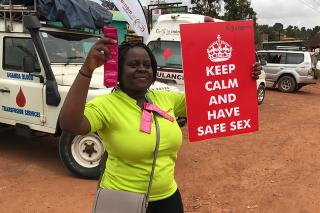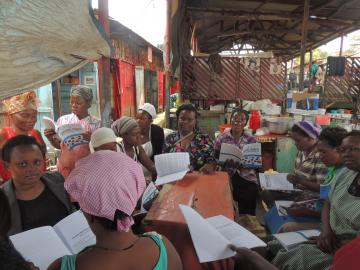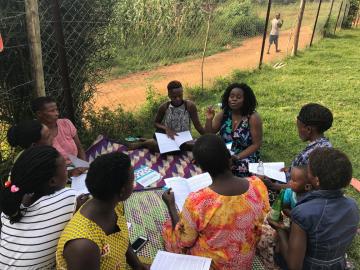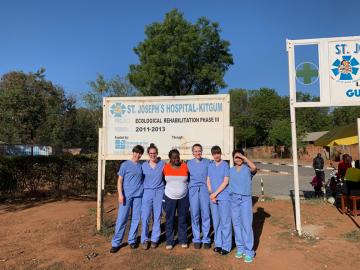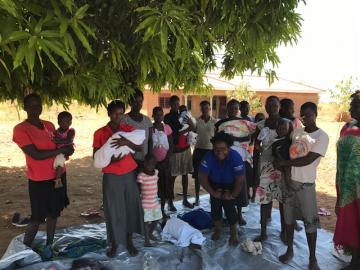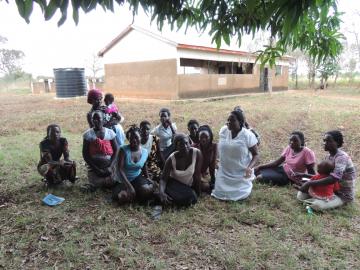While growing up in Uganda, Diana Namumbejja Abwoye '20MSN vividly remembers the shame and mystery surrounding women’s health. According to Abwoye, women were raised solely to become a housewife and a “vessel” for children — her own mother having her first pregnancy around the age of 13. Forbidden to discuss this taboo topic, young girls had little to no knowledge of their own bodies.
So imagine Abwoye’s culture shock when arriving in the United States. As she made friends and began learning new skills such as riding a bike and learning to swim, she also began to ask about women’s health — questions she was never able to comfortably ask in Uganda. Eventually, she received a copy of Our Bodies, Ourselves, a book now famous for covering topics on sexuality and reproductive health at a time when information was limited. This gift would ultimately change the trajectory of Abwoye’s future.
“When I read it for the first time, my jaw dropped,” says Abwoye. “I hadn’t come across such literature before. So many questions had been answered from over the years about birth control and sexuality and self-care. It was unbelievable.”
Feeling an urgent need to share this information, Abwoye reached out to the same friend who gifted her the book, a Harvard-tenured professor who was involved with the Our Bodies, Ourselves organization. Abwoye told her that she wanted to translate this book because the women of Uganda were in desperate need of this information.
“When I came to this country, I told myself that I didn't want to be the woman who left Uganda and did nothing for her people,” explains Abwoye. “So for me, this was one of the things I was adamant about sharing so I could make a difference in the lives of young women and girls.”
Abwoye set to work even before receiving the official copyright. As she was in a premed program at UMass, she began slowly, working on it at night. She ultimately decided to take a year off of school to complete the project.
While translating to the Luganda language, Abwoye was mindful to include several cultural adaptations to the text. For example, Uganda has a notoriously poor record on LGBTQI+ rights, so she downplayed certain vocabulary about same-sex relationships, while also keeping the relevant information in the text. Abwoye also used slang terms when discussing birth control methods in order to “bring the message home” to readers.
After finishing the translation and getting enough funding to publish the book, Abwoye traveled to Uganda. She visited hair salons, food markets, and mothers union groups, and had conversations about the topics in this book. Her hard work has paid off — many women have reached out to Abwoye to share their appreciation.
Now as a board member of Our Bodies, Ourselves, Abwoye continues to advocate for women’s health and works with their global partners on more translation/adaptation projects. In addition to her work on the board, Abwoye currently works as a Community Health Nurse at the South Boston Community Health Center and will graduate this year with a master of nursing from Simmons University.
“I am a believer in sharing,” says Abwoye. “It doesn’t make sense to see how privileged my life has turned out to be, and then travel back to Uganda to find the people are the same as when I left. I think I chose the right profession because you share. You share your compassion, you share your unconditional love — you just share.”

